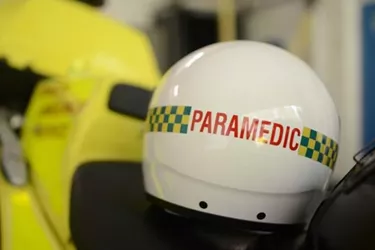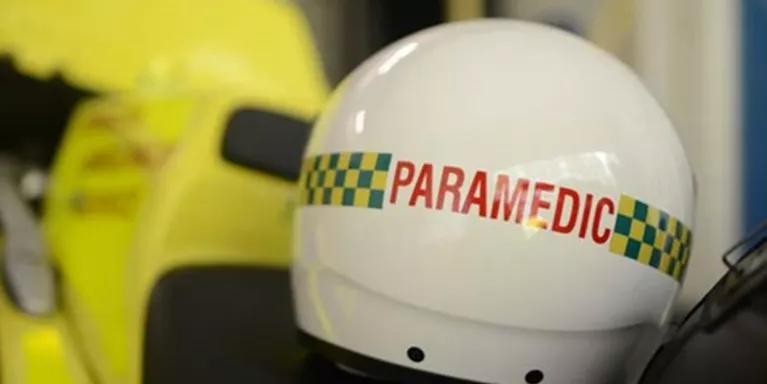Zoe's story
Zoe's in the police force. She shares her experience of post-traumatic stress disorder – how she felt, the stigma she faced and the treatment that helped her feel well again.
I've been a police officer for the past ten years. I developed post-traumatic stress disorder (PTSD) after a child abuse case I was involved with.
I thought I was fine – it was horrible, of course it was, and I had a bit of a cry on the way home from the station, but it was done.
A trauma incident officer referred me to occupational health and they sent me to a police rehabilitation centre for two weeks. But I didn't think I needed help particularly. Despite not sleeping well, I just enjoyed the fortnight.
I came back to work, got promoted to sergeant and moved to a very busy station
Three weeks later I was one of the first on the scene where two of my colleagues had been in a car crash. They were both inside and extremely injured. It was really traumatic.
I didn't have any friends as I was new to the area, I was a supervisor; I had to be there for everybody else, but nobody was there for me.
I kept thinking I'd get over it, it would be fine. But I was walking around as if I was in a bubble.
From then on, I felt myself start to deteriorate. I am quite self-aware; I know when things are happening. So I knew I was unwell, but I couldn't go off sick, because I had been off sick before – physical sickness, not mental health. So I couldn't admit I wasn't OK.
I kept thinking I'd get over it, it would be fine. But I was walking around as if I was in a bubble – it was like I wasn't really there. I was feeling that all the time. Then I'd drive somewhere and just sit in the car for an hour and not realise. In my head it had felt like minutes, because I had been so detached from what was actually happening. I was also experiencing uncontrollable anger, which was not me and quite frightening.
I'm back at work now, and I'm fit. I feel I've come out of it quite strong, and wanting to make a difference about mental health and the stigmas around it.
I went to the doctors hoping they'd just give me some tablets. I was going to work almost crying because I was that depressed about it. But I loved my job and that was the frustrating thing; I couldn't tell anyone because of the stigma at work. For many people, if you've got depression, anxiety or stress then you're weak, you're a "sicknote", everyone gets stressed and tired, that sort of thing.
The doctors referred me to NHS Mental Health, who diagnosed me with PTSD. I got signed off work for about seven months. Occupational Health at work were really good and referred me for eye movement desensitisation and reprocessing therapy, using buzzers and lights. It's bizarre but it's amazing – it works. It was fascinating.
I'm back at work now, and I'm fit. I feel I've come out of it quite strong, and wanting to make a difference about mental health and the stigmas around it. If someone had asked why I was off sick I would have talked about it. As a force we are very good at helping people with mental health issues – but we're not as good when it comes to looking after each other. We see it as weak.
Being ill doesn't make you less of a person and it doesn't mean that you can't do the job.
I know many people who have got stress, depression, anxiety or possible early signs of PTSD who will not say they've got anything wrong with them. I want to help those people get to where I am – to tell them to move on, get treatment, keep going, don't give up. That being ill doesn't make you less of a person and it doesn't mean that you can't do the job.


Information and support
When you’re living with a mental health problem, or supporting someone who is, having access to the right information - about a condition, treatment options, or practical issues - is vital. Visit our information pages to find out more.
Share your story with others
Blogs and stories can show that people with mental health problems are cared about, understood and listened to. We can use it to challenge the status quo and change attitudes.













